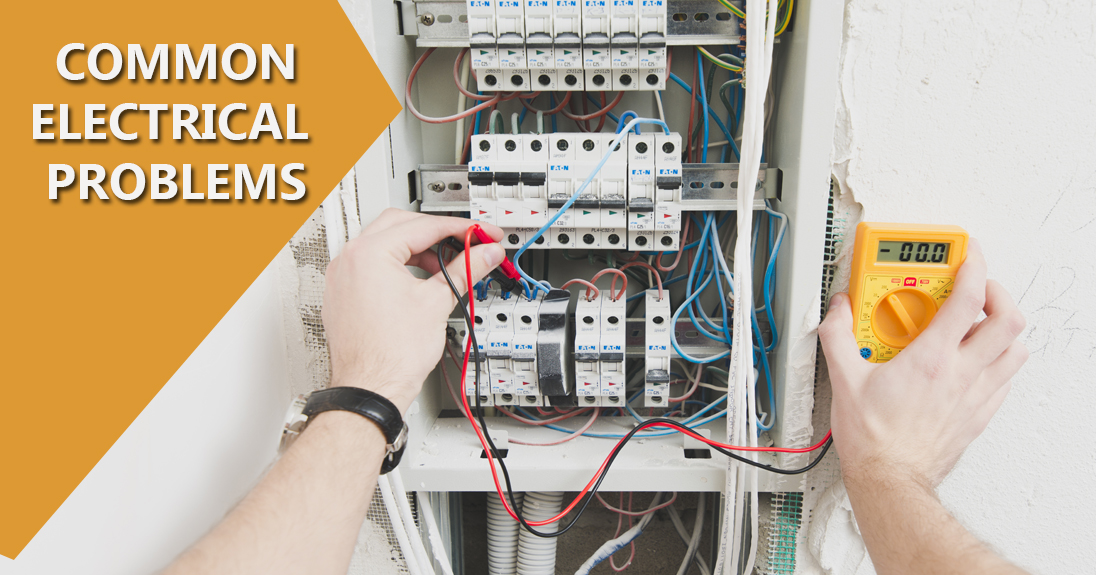We all learn to live with common electrical problems at home. While some of these problems are harmless enough, others are more serious and should not be ignored for long. For example, a small electrical problem today might lead to something much larger and damaging tomorrow; electrical fires being a classic example. Here we look at a bunch of common electrical problems in the house and what are their causes and fixes. Please note that while you can mend some of these problems yourself, getting help from a professional electrical installation and maintenance service is the safer and recommended option.
1) Repeated tripping of circuit breakers
Circuit breakers are modern day avatars of the classic fuse boxes present in older homes. As evident by the name, a circuit breaker breaks the flow of electric current (thus cutting supply) when it far exceeds the safe limit. This helps protect electrical appliances and other electronics as a large voltage can damage them for good.
A circuit breaker tripping every now and then is considered normal, especially in the absence of other concurrent problems. Flicking back the breaker’s switch is all you need to do. But if the breaker trips repeatedly, something else is amiss. One probable cause is that you might be using too many high-power appliances on a single circuit, which can exceed the circuit’s ampere rating. A shorted wire is also capable of tripping circuit breakers repeatedly. If the breaker continues to trip even after you’ve unplugged all high-ampere appliances, it’s best to get the wiring checked by an electrician.
2) Buzzing noise, charring or discolouration of switches & sockets
Have you ever touched a switch or socket and retreated because it was hot? As common as they are, hot switches and sockets are not to be taken lightly. The same can be said of switches and sockets that exhibit any charring or discolouration or give out a buzzing sound. The causes of these problems can be defective wiring inside or near the socket or a loosely connected switch which can cause a short.
3) Switches or power points giving out small shocks
Getting small shocks from switches or power points is one of the most common signs of electrical problems in homes. Although small, these electrical shocks can be quite jarring. The exact problem could lie with the switch, the power point or even the appliance plugged into it. A quick way to know the source of the shocks is to remove the plugged-in device (if any) and check with another device. If the shocks persist, the switch or the power point needs to be examined. And while you are at it, get the wiring checked as well.
4) Burning smell
When new, an appliance can heat up and emit a slight burning smell when it is turned on the first couple of times. However, if the same burning smell stems from the power point, switch off and unplug the appliance immediately and get that outlet checked by an electrician before using it again. As for the origin of the burning smell, it could be the wiring’s plastic insulation. Most electrical fires are characterised by an initial acrid smell. As for the short that causes the acrid smell, it could happen to be in the power point or wall-concealed wiring. Either way, most fire experts consider a burning smell as a warning sign since most electrical fires tend to be undetectable and odourless.
5) Sparking
Sparking should never be taken lightly. If sparks fly from your circuit breakers or fuse box, it’s time to call your electrician. But if it’s your appliance that is sparking, maybe that’s where the problem lies. Do not use a sparking appliance unless and until you’ve got it examined and repaired.
6) Dimming or flickering lights
Sporadically dimming or flickering lights are one of the most common electrical problems at home. The fault in this case usually lies with an overloaded circuit or faulty wiring. However, the light too could be the cause at times. But if multiple lights start flickering or dimming, the wiring is the most likely culprit.
7) Damaged, exposed or frayed wiring
Electrical installations like wires, cables, switches, sockets etc. have a limited lifespan. As they get older, deterioration sets in and could lead to any one or more of the aforementioned issues. Damaged, exposed or frayed wiring is a recipe for disaster as it can cause fires and electrocutions. If you’ve recently bought an old home (~20 years or older) or already live in one, get the entire wiring checked by a good electrician.
There are several electrical installation and maintenance firms that offer home electrical inspection services. It’s a good idea to hire one of these services to thoroughly examine your home’s electrical system once every couple of years. As for troubleshooting home electrical problems of the non-serious kind, calling your neighbourhood electrician should suffice.
